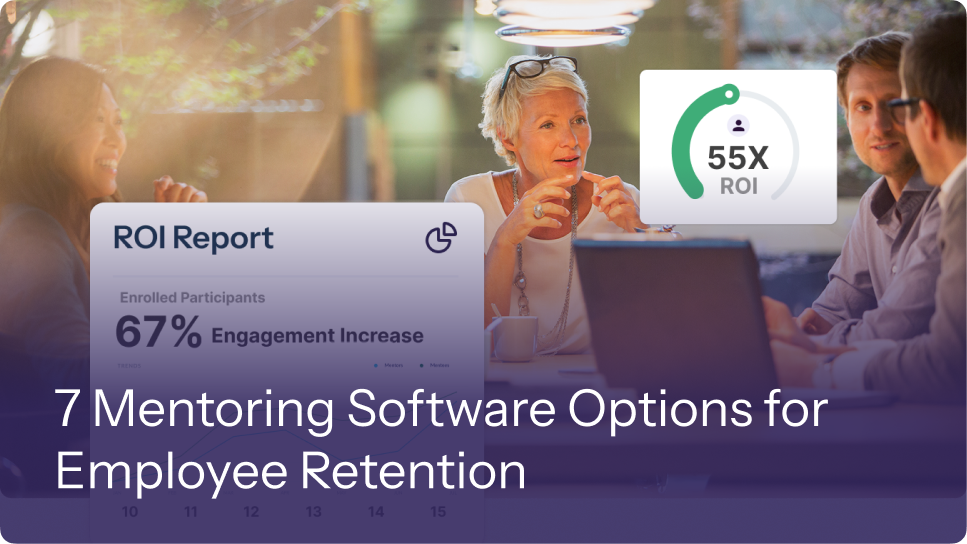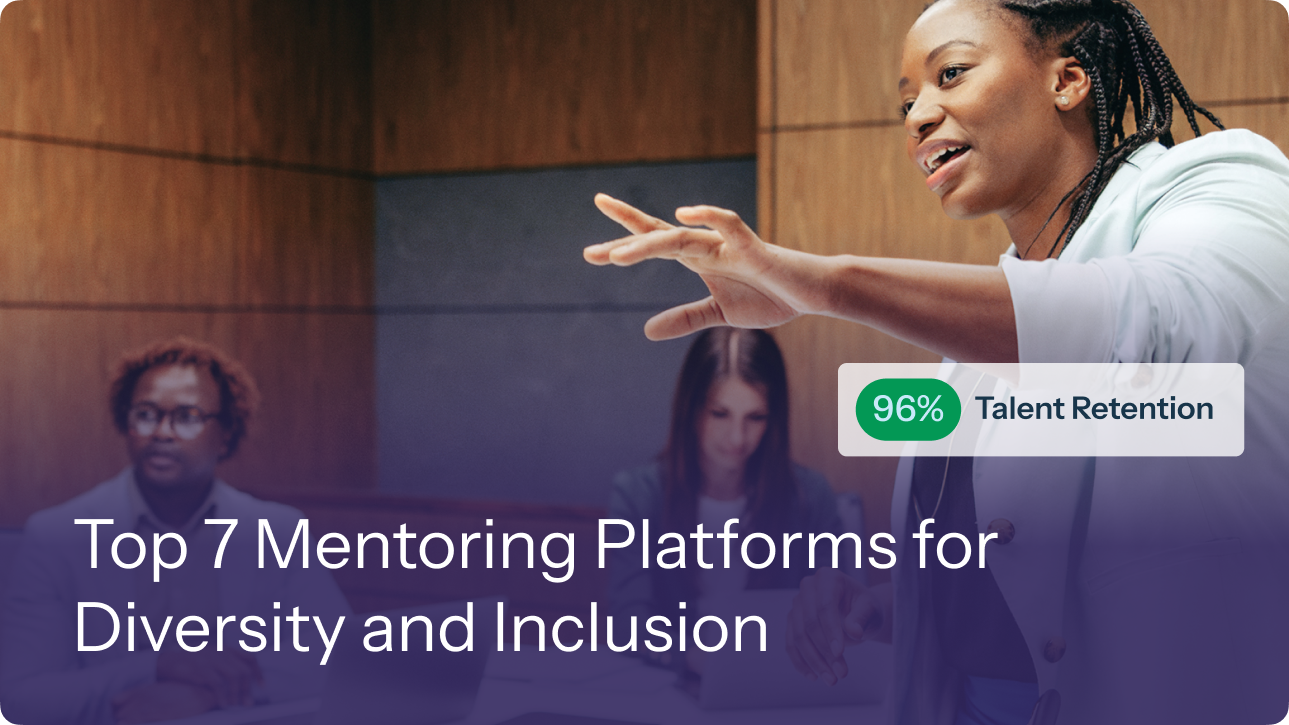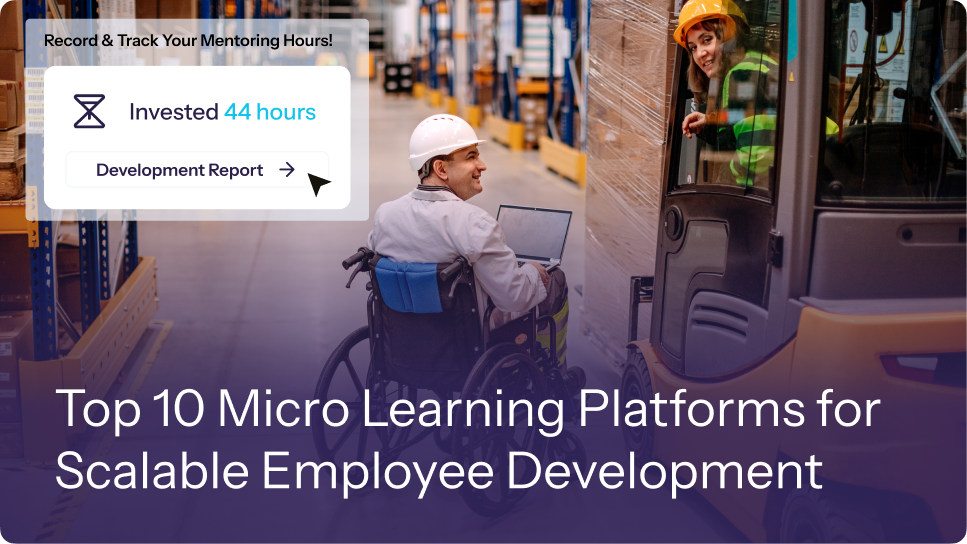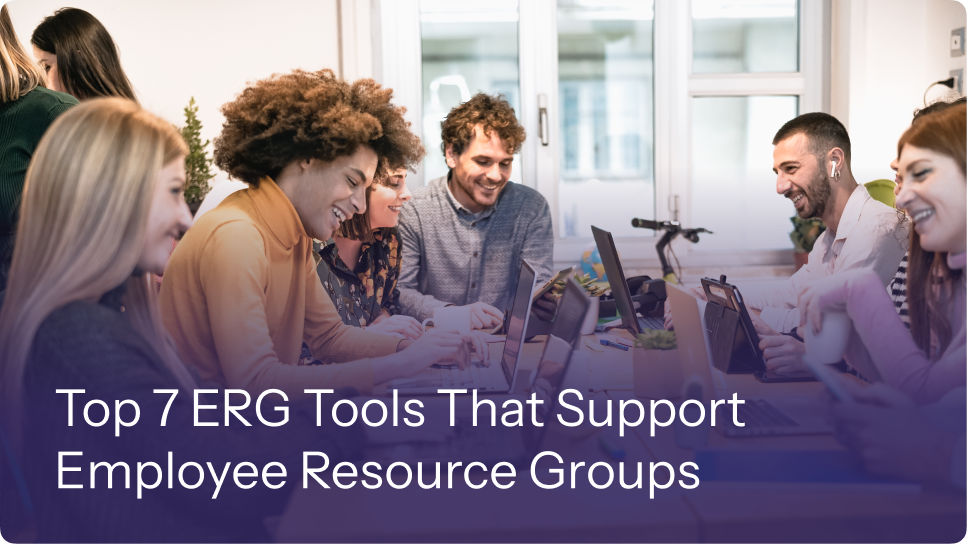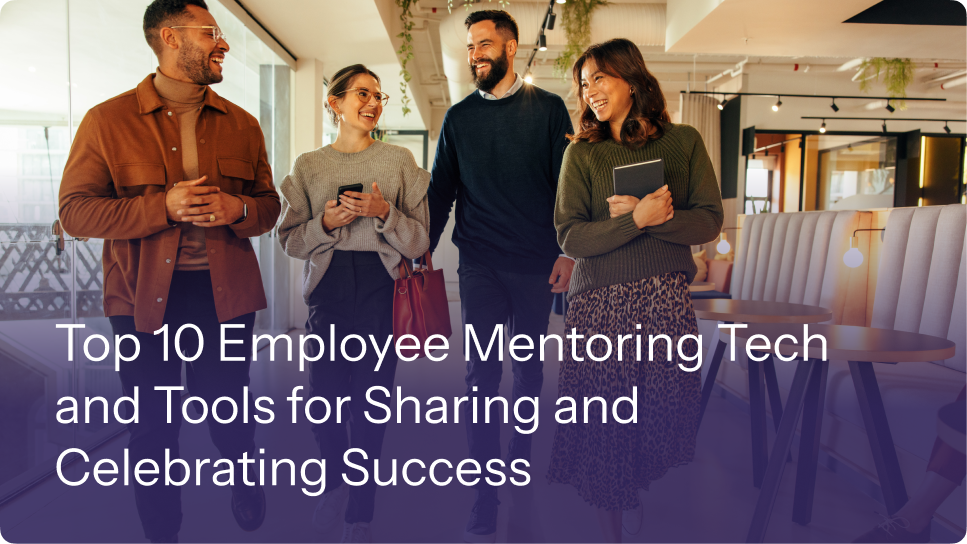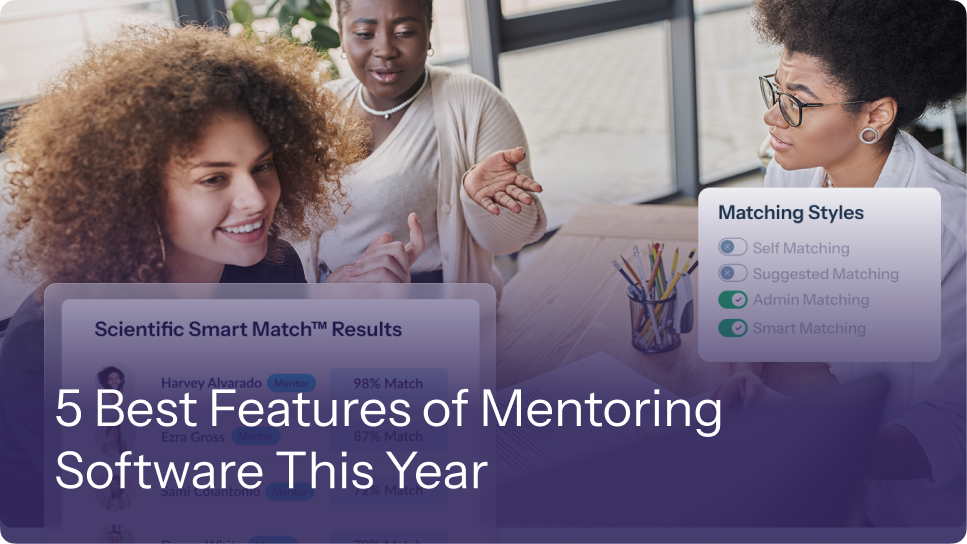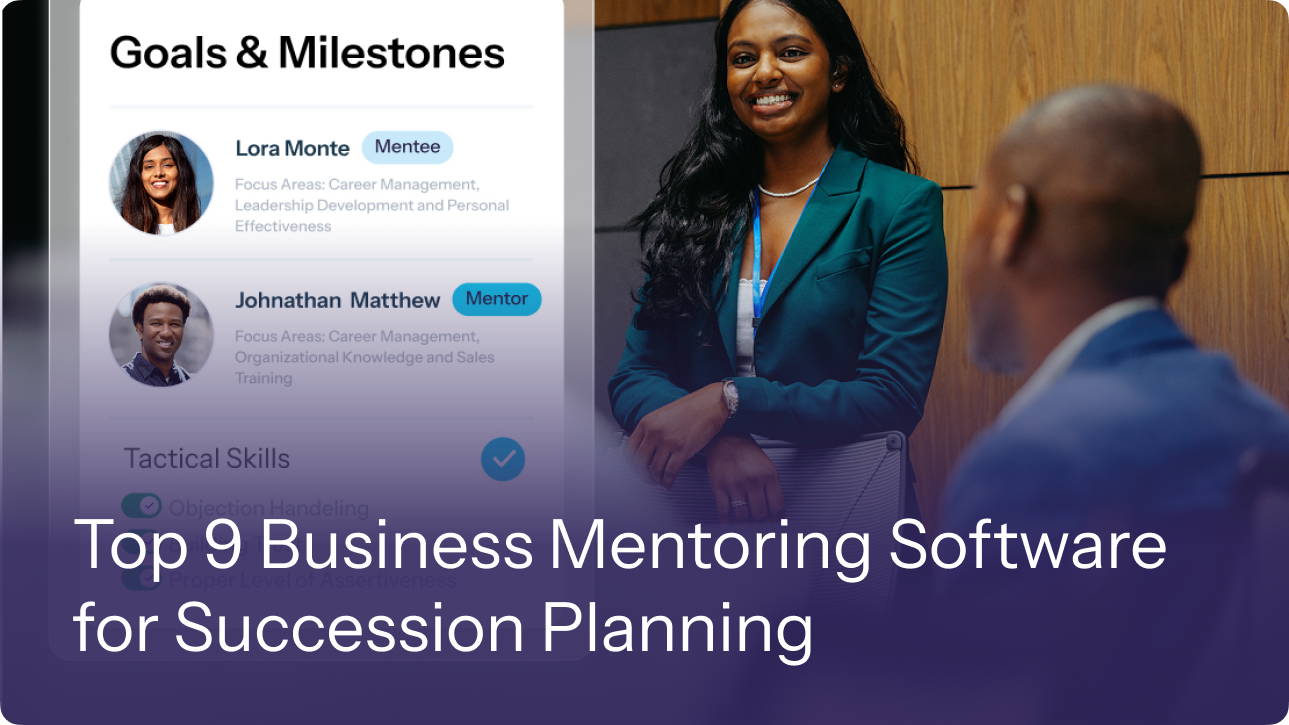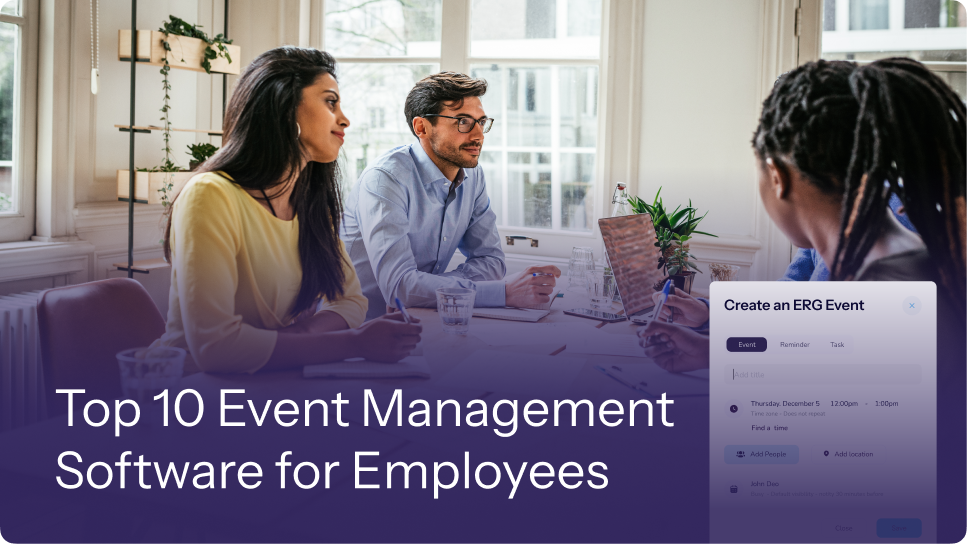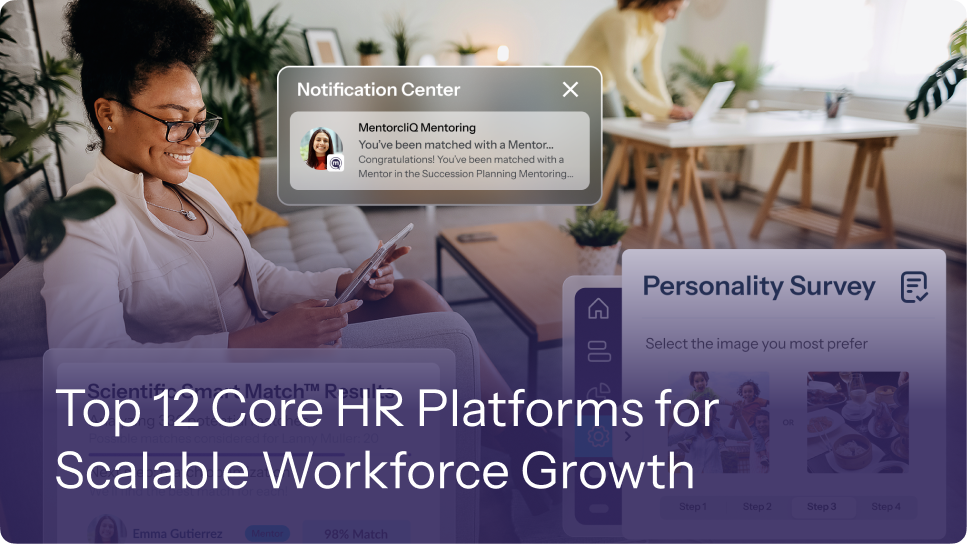Employee retention has become a defining challenge for today’s organizations. Competitive labor markets, shifting employee expectations, and evolving workplace dynamics have made it harder to keep top performers engaged and committed. Companies now recognize that salary and benefits alone are not enough. Employees stay where they feel supported, connected, and developed.
Mentoring directly supports that goal. When done well, mentoring gives employees a clear path for growth, meaningful relationships across the organization, and a sense of belonging that encourages long-term commitment. According to MentorcliQ’s Mentoring Impact and ROI report, companies that implement structured mentoring programs experience retention rates up to 50% higher than those without formal programs.
The challenge is scaling mentoring effectively. Manual processes limit reach and visibility, making it difficult to measure impact or maintain consistency across teams. This is where mentoring software becomes essential. By automating matching, tracking participation, and providing measurable insights, these platforms turn mentoring into a strategic tool for retention and culture.
What Is Mentoring Software?
Mentoring software is a digital platform designed to plan, launch, manage, and measure mentoring programs. It gives HR and L&D teams the structure and visibility needed to scale mentoring across teams, departments, and geographies.
The best platforms handle the operational side of mentoring — matching mentors and mentees, tracking sessions, collecting feedback, and reporting results — while enabling participants to focus on meaningful conversations and development.
When mentoring programs are managed through technology, participation rises, reporting becomes reliable, and HR leaders gain quantifiable evidence of mentoring’s impact on employee engagement and retention.
Key Features of Mentoring Software
Choosing the right mentoring software begins with understanding which features drive retention, engagement, and scalability. While every platform offers its own strengths, the most effective solutions share several core capabilities that make mentoring measurable and manageable across an organization.
1. Intelligent Matching
Effective pairing is the foundation of any mentoring program. Intelligent matching uses data on participants’ goals, skills, and development priorities to create productive partnerships.
Advanced platforms, like MentorcliQ, use behavioral insights and engagement data to refine matches over time, improving satisfaction and retention across programs.
2. Program Management Tools
Administrators need visibility into participation, engagement, and outcomes. Strong mentoring software includes dashboards for enrollment tracking, meeting scheduling, reminders, and goal completion.
These tools eliminate manual oversight, allowing HR teams to manage hundreds or thousands of participants with minimal administrative effort.
3. Analytics and Reporting
Retention impact requires evidence. Analytics within mentoring software track key metrics such as participation rates, goal progress, survey scores, and correlations with retention and promotion data.
The ability to connect mentoring engagement to business outcomes gives HR leaders a clear ROI story to share with executives.
4. Integrations and Accessibility
Seamless integrations connect mentoring platforms to existing systems — HRIS, LMS, Slack, Microsoft Teams, and calendar tools — ensuring mentoring fits naturally into employees’ daily routines.
Accessibility through mobile apps and single sign-on (SSO) encourages participation across regions and time zones.
5. Scalability and Global Support
Global enterprises often run multiple mentoring programs simultaneously — onboarding, leadership, diversity, peer, and reverse mentoring. Scalable software supports these variations with custom workflows and multilingual functionality.
Ongoing customer success and technical support are essential for ensuring programs maintain momentum and deliver measurable results.
7 Best Mentoring Software Options for Employee Retention
1. MentorcliQ
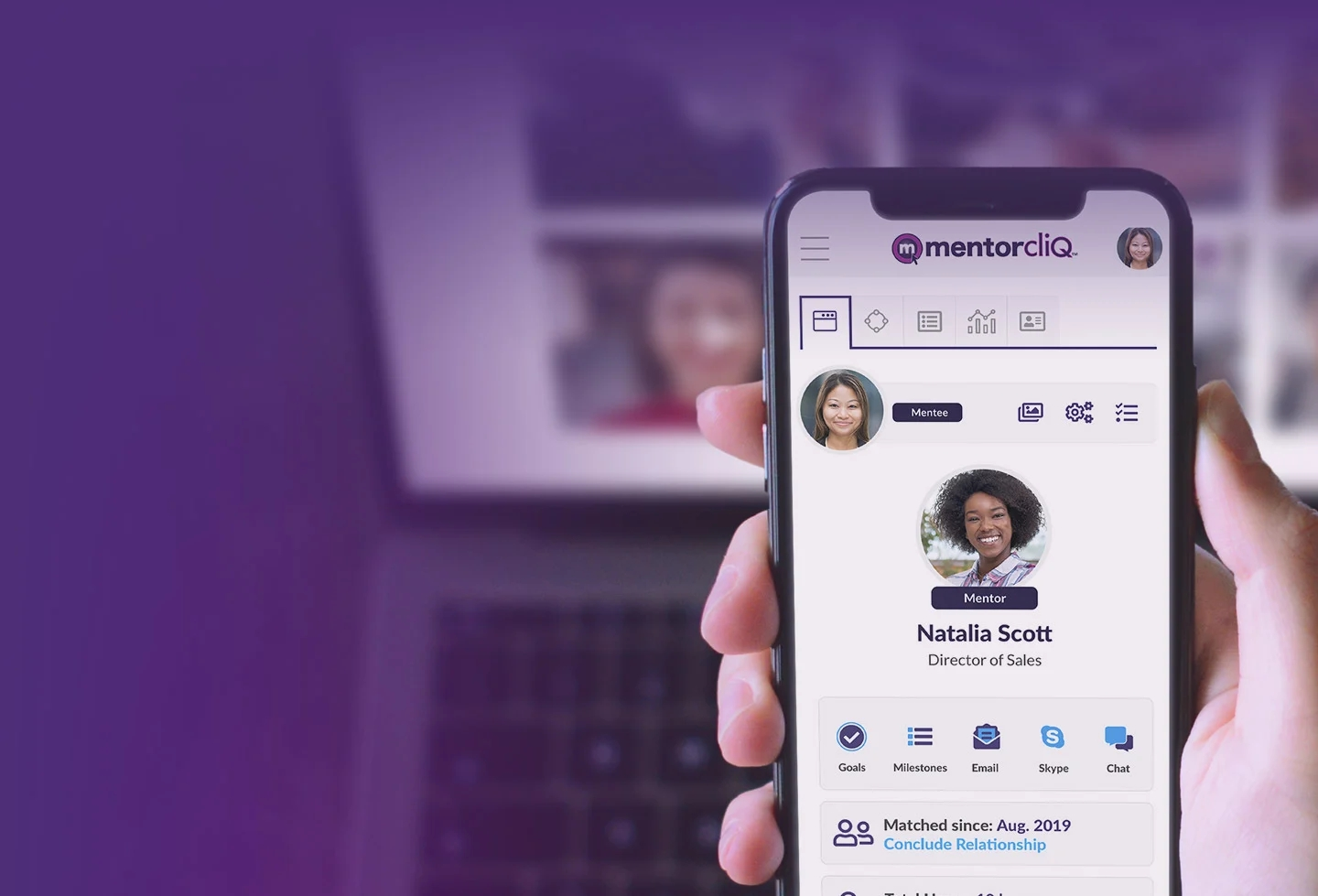
MentorcliQ is the industry-leading mentoring software trusted by Fortune 500 companies and global enterprises. It enables organizations to build structured, scalable mentoring programs that directly connect mentoring participation to retention and engagement.
Key Features:
- Behavioral Data Matching: Uses advanced algorithms to create stronger, longer-lasting mentor–mentee connections.
- Comprehensive Analytics: Links mentoring activity to retention, engagement, and promotion metrics for clear ROI visibility.
- Program Automation: Automates communication, reminders, surveys, and progress tracking for administrators and participants.
- Enterprise Integrations: Works seamlessly with HR systems, SSO, and CommunityCliQ to connect mentoring and ERG initiatives.
- Scalable Architecture: Supports thousands of participants across multiple programs and regions.
Best For: Large and mid-sized enterprises seeking a data-driven, measurable approach to mentoring and retention.
MentorcliQ stands out for its ability to combine ease of use with deep analytics, helping HR leaders demonstrate mentoring’s tangible business value.
2. Chronus
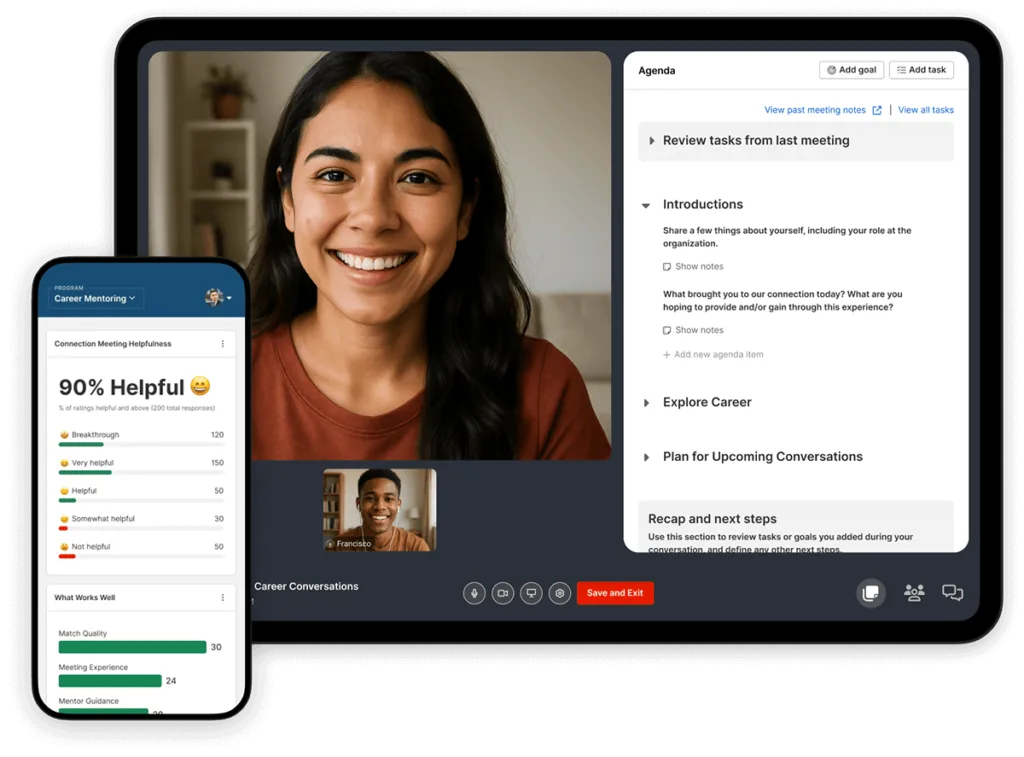
Chronus offers a guided mentoring and talent development solution used by organizations worldwide to improve engagement and retention. Its structured workflows and data dashboards help companies manage programs efficiently while maintaining participant autonomy.
Key Features:
- AI and self-matching options for flexible program design
- Automated workflows and guided mentoring templates
- Analytics that correlate mentoring participation with retention
- Integrations with HRIS and learning management systems
Best For: Medium-to-large organizations needing customizable mentoring with strong analytics capabilities.
3. Qooper
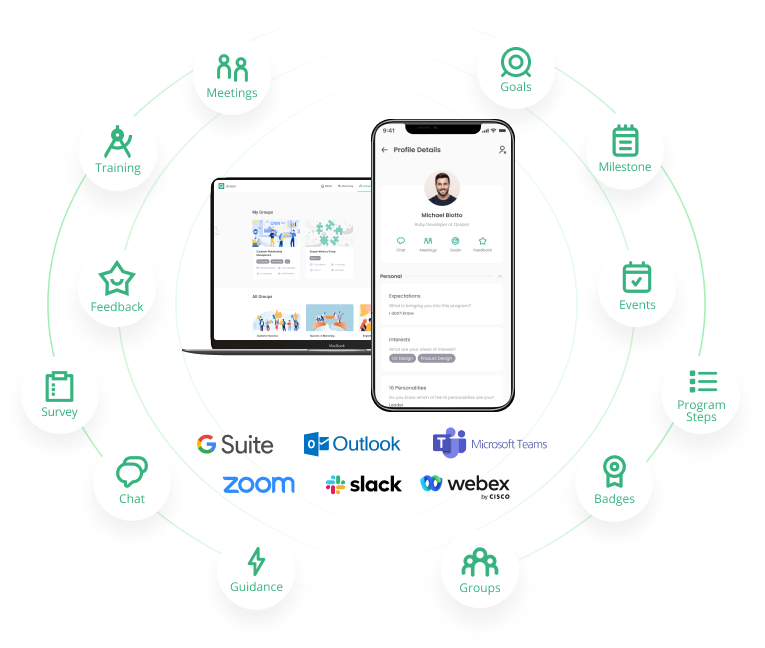
Qooper focuses on user experience and scalability, combining mentoring, coaching, and training in a unified platform. It’s designed to build engagement among hybrid and distributed teams.
Key Features:
- Smart matching algorithms based on goals and skill sets
- Built-in conversation guides and progress tracking
- Administrator dashboards with engagement insights
- Integrations with HR and collaboration tools
Best For: Organizations seeking a modern, mobile-friendly platform with flexible mentoring program structures.
4. Mentorloop
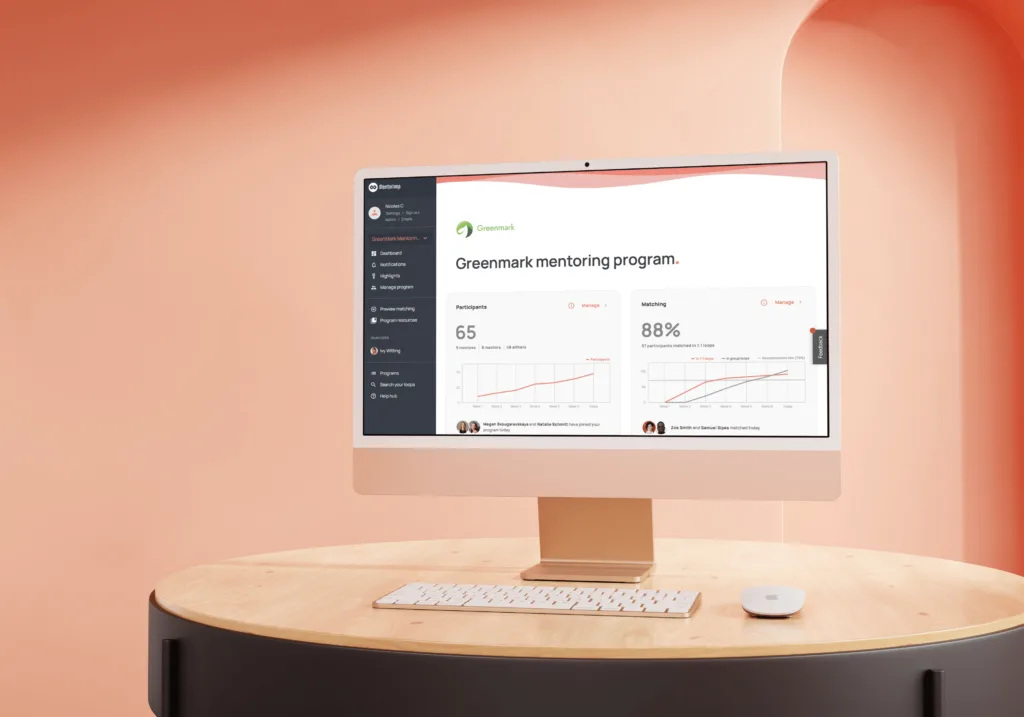
Mentorloop provides an intuitive, cloud-based platform that makes mentoring simple to launch and maintain. Its focus on accessibility and automation helps HR teams quickly expand mentoring programs.
Key Features:
- Self-matching and administrator matching options
- Communication and meeting management tools
- Program health and engagement analytics
- Scalable configuration for small or large teams
Best For: Smaller organizations or pilot programs seeking simplicity and rapid implementation.
5. Mentorink
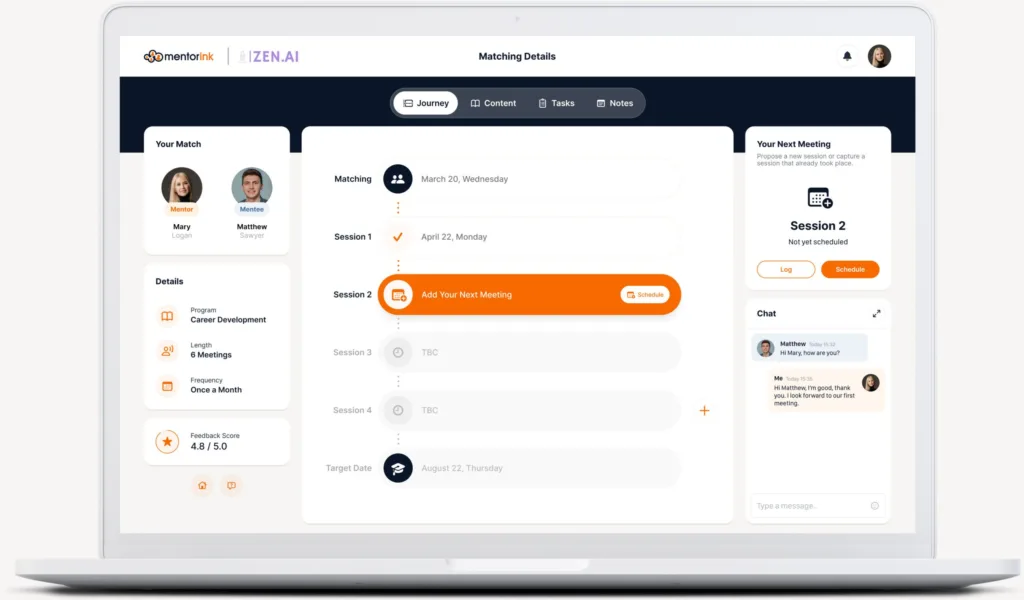
Mentorink supports structured mentoring experiences that link development conversations to measurable business outcomes. Its flexibility allows organizations to run multiple program types under one platform.
Key Features:
- Configurable workflows for 1:1, reverse, and group mentoring
- Survey and analytics tools to monitor retention impact
- Custom matching logic and real-time progress tracking
Best For: Companies prioritizing flexible program design and detailed data reporting.
6. Guider
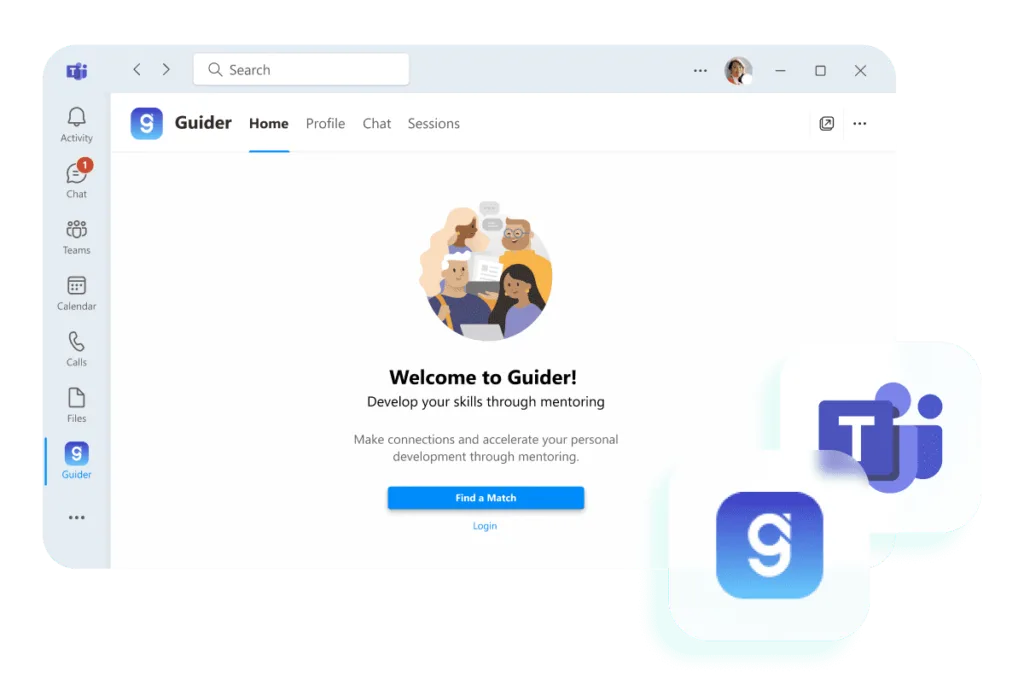
Guider combines mentoring, coaching, and peer-learning into one enterprise-ready solution. Its AI-driven technology enables organizations to scale relationship-based learning globally.
Key Features:
- AI-powered matching and personalized guidance
- Global accessibility with multilingual support
- Insights into engagement, progress, and retention impact
Best For: Large enterprises with global teams and DEI-focused mentoring goals.
7. PushFar
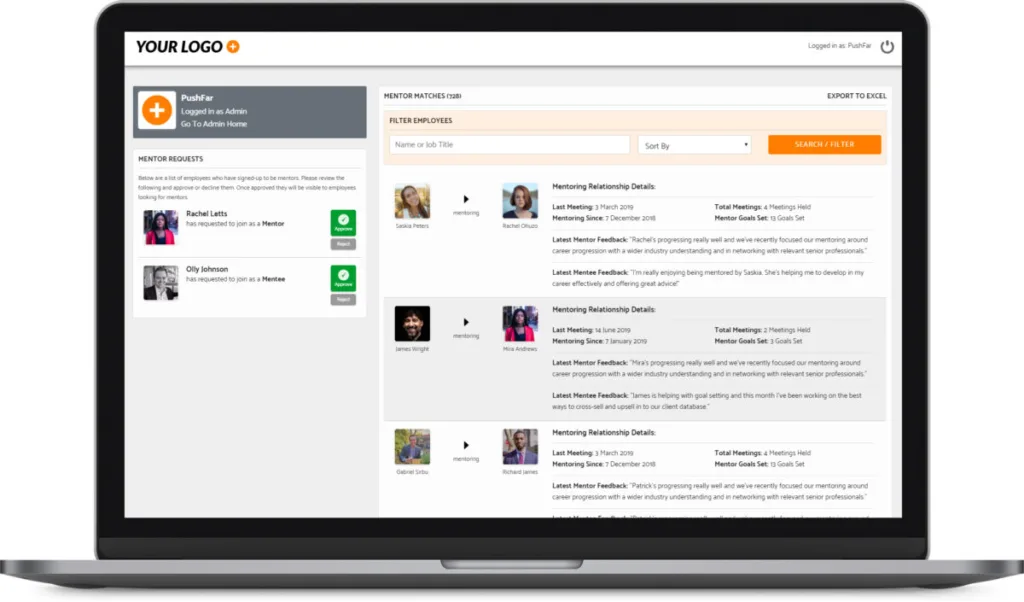
PushFar delivers mentoring and career development capabilities designed to foster community and continuous learning. Its accessible interface makes mentoring easy to launch and expand.
Key Features:
- Automated matching and career goal tracking
- Built-in community engagement tools
- Reporting dashboards for activity and outcomes
Best For: Organizations prioritizing accessibility and professional development within retention strategies.
Benefits of Mentoring Software for Employee Retention
The right mentoring software doesn’t just make program management easier — it drives measurable improvements in engagement, inclusion, and retention. When organizations connect mentoring to development and belonging, they strengthen the employee experience in ways that directly impact tenure and performance.
1. Increased Engagement and Connection
Employees who feel supported through mentoring report higher engagement and loyalty. Mentoring builds a sense of belonging and shared purpose — both proven predictors of retention.
2. Leadership Development and Career Growth
Mentoring, when paired with mentor training, creates structured development opportunities that prepare employees for advancement. This drives internal mobility, reduces turnover, and strengthens leadership pipelines.
3. Inclusive Culture and Belonging
Cross-functional and cross-demographic mentoring promotes inclusion, representation, and understanding. When employees build meaningful connections across levels and backgrounds, retention improves.
4. Data-Driven Retention Insights
With mentoring software, HR leaders can quantify the impact of mentoring on retention. Metrics like participation rates, tenure, and promotion velocity provide clear, defensible ROI data.
5. Scalable Talent Development
Technology allows mentoring programs to expand beyond small pilot groups. As organizations scale, consistency and quality remain high, enabling retention benefits across departments and regions.
Building a Retention Strategy with Mentoring
A sustainable retention strategy depends on more than compensation or perks — it relies on connection, development, and purpose. Mentoring provides all three. When supported by the right technology, it becomes one of the most effective tools for retaining employees, improving employee morale, and strengthening organizational culture.
Mentoring software transforms informal conversations into structured development experiences. It allows leaders to identify growth needs, create measurable employee development plans, and track real outcomes such as promotion rates and tenure. By linking these outcomes to participation data, HR teams can demonstrate how mentoring directly influences retention and job satisfaction.
The impact extends beyond individual growth. Mentoring fosters a sense of belonging across departments, experience levels, and geographies. Employees who participate in mentoring report stronger relationships with their managers, higher engagement scores, and deeper commitment to organizational goals. These factors collectively reinforce loyalty and reduce the high cost of turnover.
To sustain that impact, organizations should embed mentoring into the fabric of their talent strategy. Use mentoring software to standardize matching, measure outcomes, and scale access across your workforce. Pairing technology with intentional program design ensures that every employee can benefit from meaningful guidance and development — not just a select few.
Mentoring builds commitment. Software makes it measurable. Together, they create a long-term foundation for retention, morale, and growth.
Book a Demo with MentorcliQ to learn how your organization can implement scalable, data-driven mentoring programs that strengthen employee development, increase job satisfaction, and make retaining employees a consistent success.



